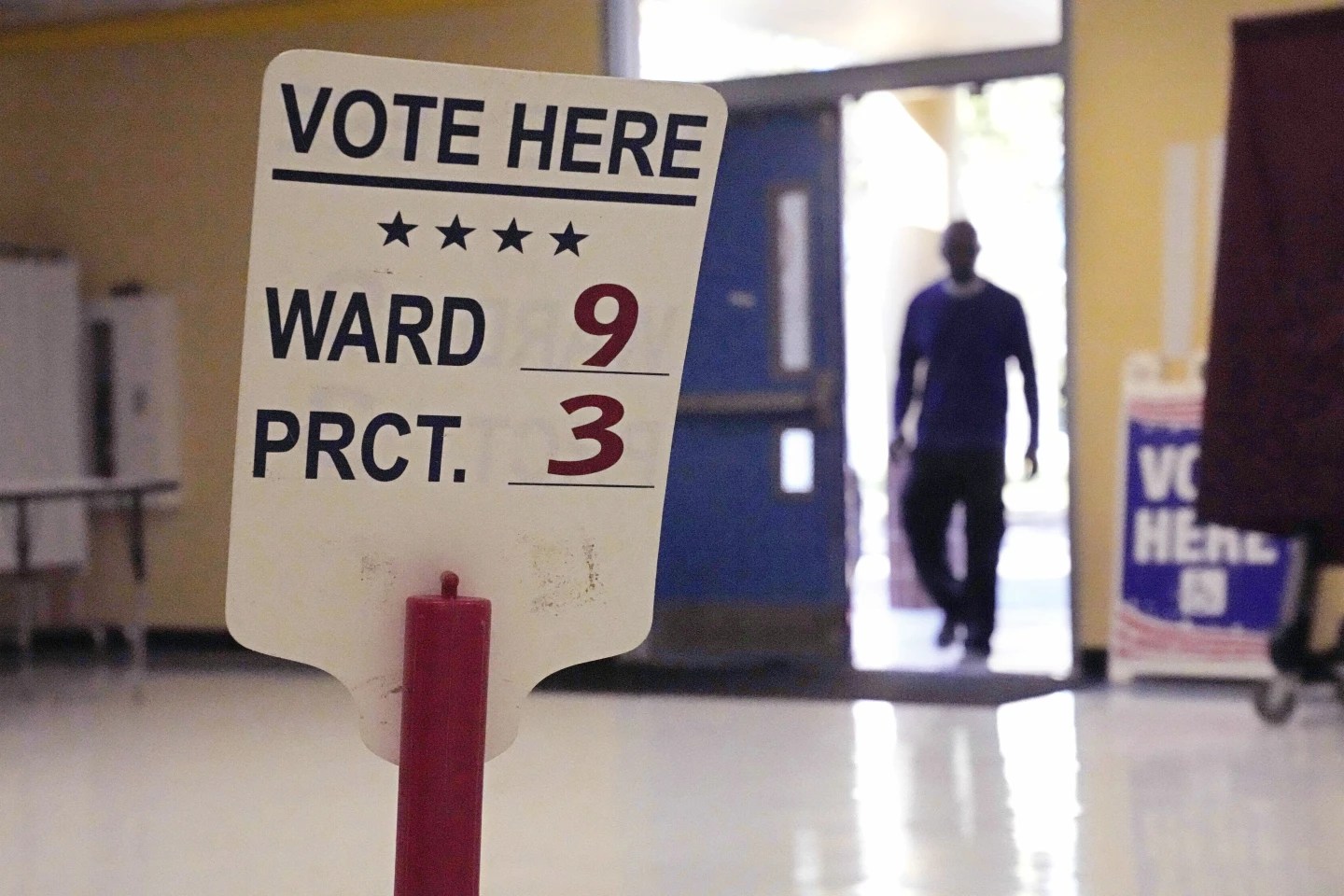Georgia’s voting districts are discriminatory, judge finds, as he orders state to redraw map
U.S. District Judge Steve Jones said he would not allow the 2024 elections to be conducted using districts he has found to be “unlawful.”
ATLANTA (AP) — A federal judge ruled Thursday that some of Georgia’s congressional, state Senate and state House districts were drawn in a racially discriminatory manner, ordering the state to draw an additional Black-majority congressional district.
U.S. District Judge Steve Jones, in a 516-page order, also ordered the state to draw two new Black-majority districts in Georgia’s 56-member state Senate and five new Black-majority districts in its 180-member state House.
Jones’ ruling follows an eight-day September trial in which the plaintiffs argued that Black voters are still fighting opposition from white voters and need federal help to get a fair shot, while the state argued court intervention on behalf of Black voters wasn’t needed.

“Georgia has made great strides since 1965 toward equality in voting,” Jones wrote. “However, the evidence before this court shows that Georgia has not reached the point where the political process has equal openness and equal opportunity for everyone.”
Jones ordered Georgia’s Republican majority General Assembly and governor to take action before Dec. 8, saying he would redraw districts if lawmakers did not, and that he would not allow the 2024 elections to be conducted using districts he has found to be “unlawful.” That would require a special session, as lawmakers aren’t scheduled to meet again until January.
A spokesperson for Attorney General Chris Carr, whose office defended the plans in court, declined comment, saying lawyers were still reading the ruling. A spokesperson for Gov. Brian Kemp didn’t immediately respond to a request for comment. Jones’ order explicitly anticipates an appeal by the state.
A new map could shift one of Georgia’s 14 congressional seats from Republican to Democratic control. GOP lawmakers redrew the congressional map from an 8-6 Republican majority to a 9-5 Republican majority in 2021. Jones ruled that lawmakers could not eliminate minority opportunity districts elsewhere when they redraw maps.
“I applaud the district court’s decision ordering Georgia to draw maps compliant with the Voting Rights Act,” said state Senate Minority Leader Gloria Butler, a Stone Mountain Democrat. “We are eager to help pass fairer maps that comply with federal law.”
The Georgia case is part of a wave of litigation after the U.S. Supreme Court earlier this year stood behind its interpretation of the Voting Rights Act, rejecting a challenge to the law by Alabama.
Courts in Alabama and Florida ruled recently that Republican-led legislatures had unfairly diluted the voting power of Black residents. Legal challenges to congressional districts are also ongoing in Arkansas, Kentucky, Louisiana, New Mexico, South Carolina, Tennessee, Texas and Utah.
Orders to draw new legislative districts could narrow Republican majorities in the state House, where the GOP has a 102-78 edge, and in the state Senate, with a 33-23 edge. But on their own, those changes are unlikely to lead to a Democratic takeover.
Jones wrote that he conducted a “thorough and sifting review” of the evidence in the case before concluding that Georgia violated the Voting Rights Act in enacting the current congressional and legislative maps.
The judge wrote that despite the fact that all of the state’s population increase between 2010 and 2020 was attributable to growth among non-white populations, the number of congressional and legislative districts with a Black majority remained the same.
That echoes a key contention of the plaintiffs, who argued repeatedly that the state added nearly 500,000 Black residents during the decade but drew no new Black-majority state Senate districts and only two additional Black-majority state House districts.
Jones wrote in a footnote that his order “in no way states or implies that the General Assembly or Georgia Republicans are racist.” The Voting Rights Act does not require him to find that the challenged maps were passed to discriminate against Black voters or that the Legislature is racist, he wrote. “Nothing in this order should be construed to indicate otherwise.”
TheGrio is FREE on your TV via Apple TV, Amazon Fire, Roku, and Android TV. Please download theGrio mobile apps today!

